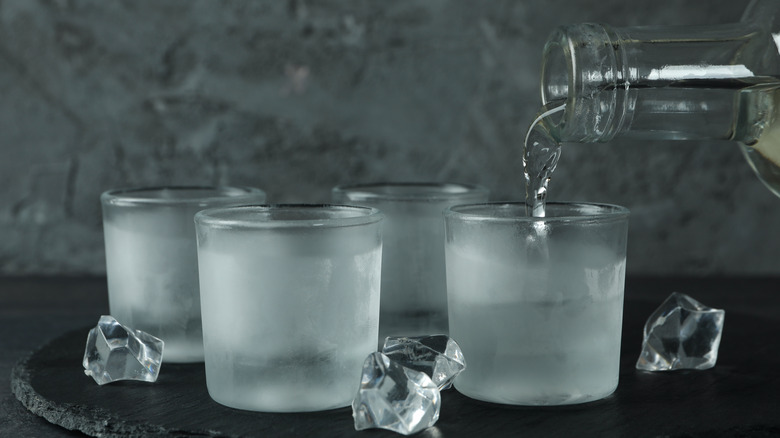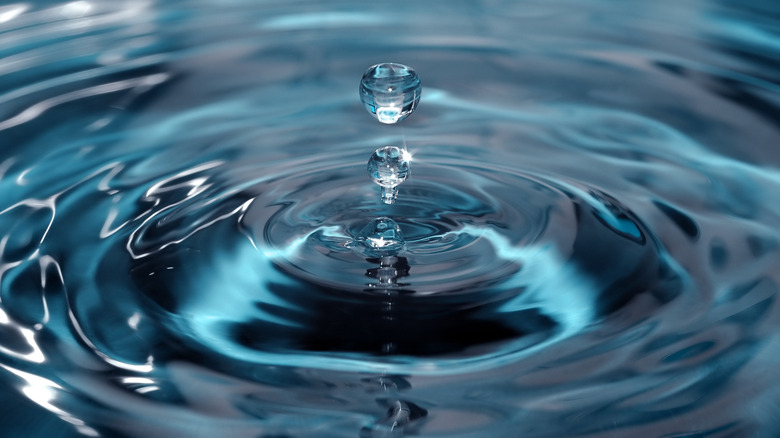The Most Important Ingredient In Vodka Probably Isn't What You Think
Ah, vodka. The crystal clear spirit that has served as the base for so many cocktails and cultural stereotypes. Whether you're impersonating your favorite British spy when ordering a martini or having it ice-cold straight from the freezer, vodka is enduringly popular. According to Statista, 77 million 9-liter cases of vodka were sold in the United States in 2020, accounting for about $26.6 billion in retail sales. In a top 20 list of America's favorite boozes in 2020, vodka took six spots, with Tito's coming out on top as number one (via Vinepair).
So yes, vodka is very popular, but there is more to it than that. A lot goes into making this clear spirit. There's the selection of the grains, fermentation, actual distilling process, mixing, bottling, etc. While it's common to think of vodka as deriving exclusively from grain or potatoes, you can distill vodka from almost anything, even red wine. But there is one ingredient in vodka that is simultaneously the most important and the one we take most for granted: water.
It's in the name
There is a pretty obvious hint in the importance of water's role in vodka production, provided you're familiar with the Russian language. As ABC Fine Wine and Spirits explains, vodka is derived from the Russian word "voda," which translates to "water." Professional water sommelier — yes, that's a thing — Martin Riese states that water is "way more important than people think" regarding vodka (via Liquor.com). In addition, he says the quality of the ice for the cocktail matters (he even uses Fiji cubes at home, according to the site).
While the case can be made that vodka has no real flavor apart from its alcoholic bite, the fact is that grain and water go a long way in developing a unique flavor profile for all vodkas. Tony Abou-Ganim told Liquor.com, "Water has a great effect on the overall character of the final distillate and contributes to texture and mouthfeel." The amount of distillation also has an effect. He says that many producers today use "dead water" that has been heavily treated, causing some of the flavors to be lost. Western vodkas, according to Forbes, tend to be more heavily filtered and distilled. Eastern vodkas? Considerably less so, which is why they tend to be on the more flavorful side.

